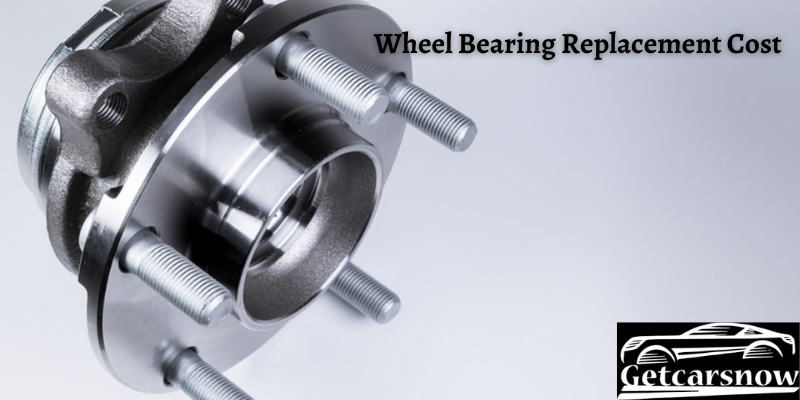
BMW Z8 Engine – Complete Information
The BMW Z8 Engine was built by BMW from 2000 to 2003. The Z8 featured an all-aluminum chassis and body, and it was powered by a 4,941 cc V8 engine that produced 400 PS (294 kW; 395 horsepower) at 6,600 rpm and 500 Nm (369 lb-ft) of torque at 3,800 rpm. The engine is positioned behind the front axle to ensure a 50/50 weight distribution throughout the vehicle.
We will be discussing the BMW Z8 Engine.
Specifications of BMW Z8 Engine
The 4.9-liter V8 engine was the finest engine BMW had at the time. It had a 6-speed manual transmission and produced 400 horsepower and 500 Nm (369 lb-ft) of torque.
With its flowing bodywork, the idea was a feast of design extravagance. It kept the parent engine’s hydraulic self-adjusting tappets, making it the first M power unit that didn’t need its shims redone at major service time. There were some cost-cutting techniques on the engine despite substantial modifications over the normal BMW 4.4-litre. The front suspension used MacPherson struts and lower wishbones, with a five-link rear arrangement, and aluminum was used wherever feasible to keep the weight down.
- Engine type:- V8
- Displacement:- 5.0 l (305 ci)
- Power:- 400 ps (395 bhp / 294 kw)
- Torque:- 500 Nm (369 lb-ft)
- Power / liter:- 80 ps (79 hp)
- Transmission:- 6 speed manual
Problems of BMW Z8 engine
The Z8 engine is although a good engine but it has many flaws. Here are some of the issues of the BMW Z8 engine:-
Cooling System
The BMW 5 Series’ water pump and thermostat have been known to fail. The temperature Should be monitored to check if the engine is getting too hot. In this kind of car, the cooling system is responsible for 25% of all mechanical difficulties, and if problems are allowed to remain, they can create issues with the entire engine.
Fuel Pump
The fuel pump system of Z8 has been frequently reported to have issues, resulting in poor engine performance, limited power, and rough idling. Because the part was modified as a result of the failures, this necessitates a complete replacement of all six pumps which is an expensive process. It has few issues as it frequently misfires and has a higher likelihood of halting.
Tensioners
Worn tensioners and idler pulleys produce a characteristic screeching sound that rises from the engine area. If such noises are detected, we recommend doing a fast visual inspection of the engine belts for cracks or damage. A faulty belt might compromise the cooling system, causing issues with the cooling system, alternator, and power steering.
Failing Valve Cover Gasket
The valve cover keeps the engine oil sealed. This indicates that if the gasket breaks, the oil will flow. Oil seeping from a faulty valve cover gasket usually finds its way to the ground. It’s possible that it’ll end up in the wrong part of the engine. Engine oil spilling over the car’s spark plugs is not unusual. If the valve cover seal is not functioning properly. If this happens, the engine will most likely start misfiring. Valve stem seal for the Z8. The gaskets on the cylinder heads are meant to keep oil out of the combustion chamber. Valve stem seals are also responsible for lubricating the intake and exhaust valves.
The valve stem seals on the Z8 are composed of a low-quality material that corrodes and becomes brittle over time. With time, fractures occur in the valve’s connection, allowing oil to leak into the combustion chamber. When the engine is started, idle oil is drawn into the cylinder, creating smoke as the oil burns.
Leaky Oil Filter Gasket
BMW Z8 engines have a lot of oil filter gasket leaks. This happens because the gasket connecting the engine to the oil filter looks to be faulty and leaks on a frequent basis. Because the aforementioned gasket connects the oil filter to the moving elements of the car, it’s important to solve this problem as soon as possible. Lubrication is essential for a vehicle’s moving parts to prevent wear and tear and extend its life. Over time, the gasket connecting the oil filter to the BMW engine might become brittle.
Oil Leakage
Oil Spills Oil leaking is one of the BMW Z8’s most serious issues. This is a problem that most engines have. Oil leaking is one of the most prevalent issues. This is more noticeable in the BMW Z8 engine than in any other vehicle in the series. Leaks might be caused by problems with the camshaft seals, valve cover gaskets, and front and rear crankshaft seals, among other engine components.
Conclusion
We’ve discussed the BMW Z8 engine, which is a fantastic engine that the company has created. With a displacement of 1998 cubic centimeters, it produces 248 horsepower and 350 Nm of torque. It has a few issues, such as oil leaks and a leaking oil filter gasket. To keep this engine in excellent working order, servicing must be finish on time, and it is a fantastic engine that the firm has worked on in the past.



